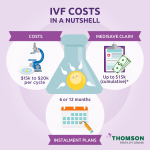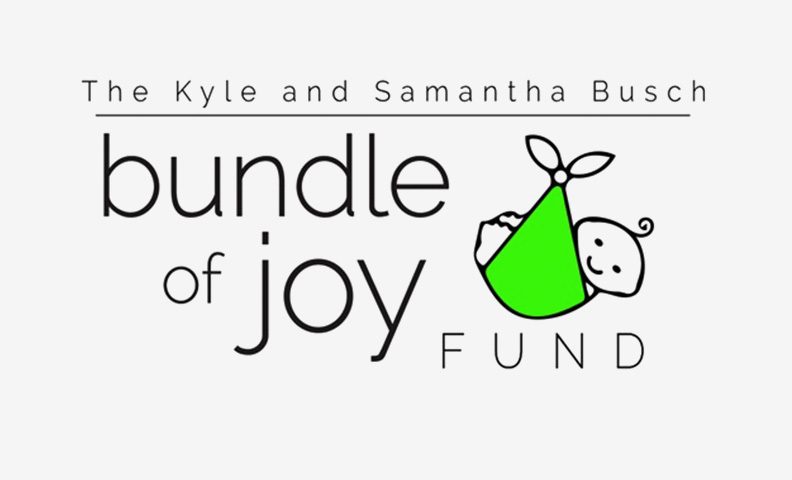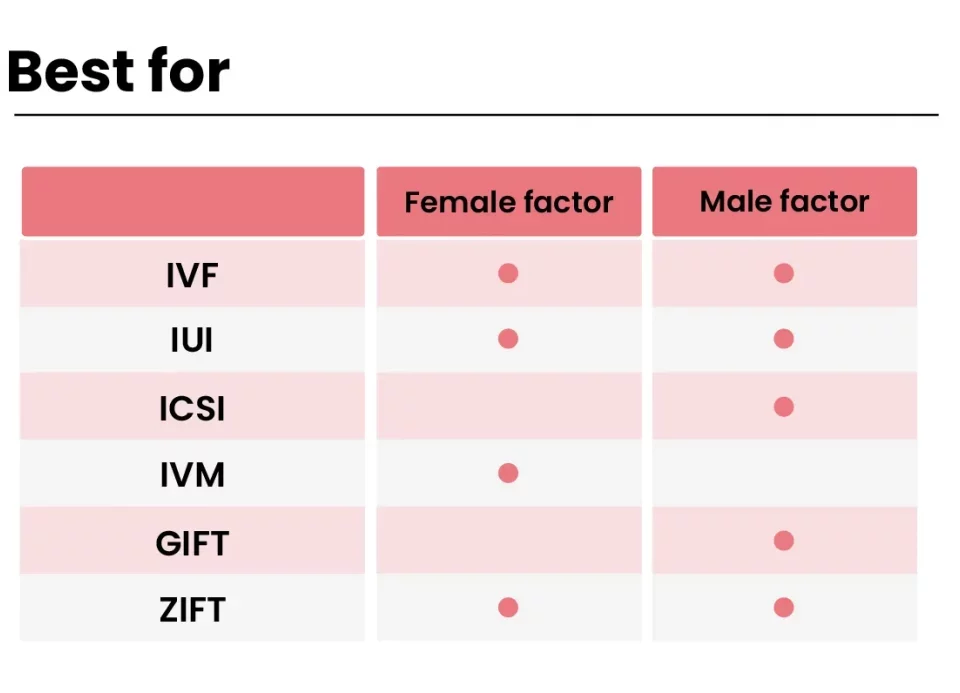
How to Figure Out Your Due Date with IVF
April 20, 2025
Is IVF a Tax Deduction? Your Guide to Saving Money on Fertility Treatments
April 20, 2025How Much Does IVF Cost in North Carolina? Your Complete Guide to Affording Fertility Treatment

How Much Does IVF Cost in North Carolina? Your Complete Guide to Affording Fertility Treatment
If you’re thinking about in vitro fertilization (IVF) in North Carolina, one of the first questions on your mind is probably: How much is this going to cost me? You’re not alone. For many families dreaming of a baby, the price tag can feel like a huge roadblock. But here’s the good news: with the right info, you can figure out what to expect and how to make it work. This guide dives deep into IVF costs in North Carolina, breaking down everything from clinic fees to hidden expenses, insurance quirks, and creative ways to save. Whether you’re just starting to explore or you’re ready to take the plunge, let’s walk through this together.
What’s the Average Cost of IVF in North Carolina?
IVF isn’t cheap anywhere, but prices in North Carolina can vary a lot depending on where you go and what you need. On average, a single IVF cycle here runs between $10,000 and $25,000. That’s a big range, right? Let’s break it down.
A basic IVF cycle—covering egg retrieval, fertilization in a lab, and embryo transfer—usually starts around $10,000 to $15,000 at most North Carolina clinics. But that’s just the base price. Add in medications (think $2,000 to $7,000 more), testing, and extras like embryo freezing, and you could easily hit the higher end of that range. For example, clinics in bigger cities like Charlotte or Raleigh might charge more because of demand and overhead, while smaller towns might offer lower rates.
Why such a wide gap? Every patient’s journey is different. Some folks need one cycle and get lucky, while others might need multiple rounds or special procedures like genetic testing. Real talk: the average couple needs 2-3 cycles to have a baby, so costs can add up fast—sometimes to $50,000 or more over time.
Breaking Down the IVF Price Tag: What Are You Paying For?
IVF isn’t just one big bill—it’s a bunch of smaller costs bundled together. Understanding what’s included can help you plan (and avoid surprises). Here’s what you’re typically paying for:
- Ovarian Stimulation and Monitoring: Before eggs can be retrieved, you’ll take meds to boost egg production. These drugs can cost $2,000 to $7,000 per cycle, depending on your dosage. Plus, you’ll have ultrasounds and blood tests to track progress—usually $800 to $1,500 extra.
- Egg Retrieval: This is the procedure where doctors collect your eggs. It’s often $3,000 to $5,000, including anesthesia.
- Fertilization and Embryo Culture: In the lab, eggs meet sperm (sometimes with a little help from a technique called ICSI, which adds $1,000-$2,000). Growing those embryos for a few days? That’s baked into the base fee, usually $5,000-$8,000.
- Embryo Transfer: Placing the embryo in your uterus is quick but still costs around $1,500-$3,000.
- Extras: Freezing embryos for later ($600-$1,000 upfront, plus $300-$500 yearly storage) or genetic testing (up to $5,000) can pile on.
Take Sarah, a 34-year-old from Durham. Her first cycle at a local clinic was quoted at $12,000. But after meds ($4,000) and freezing extra embryos ($800), her total hit $16,800. That’s pretty typical for North Carolina.
Quick Cost Checklist
✔️ Base IVF cycle: $10,000-$15,000
✔️ Medications: $2,000-$7,000
✔️ Monitoring: $800-$1,500
✔️ Freezing embryos: $600-$1,000 + storage fees
❌ Unexpected hiccups: Priceless (but we’ll get to that).
Does Insurance Cover IVF in North Carolina?
Here’s where things get tricky. North Carolina doesn’t have a state law forcing insurance companies to cover IVF, unlike places like New York or Illinois. That means coverage depends on your specific plan—and most don’t include fertility treatments.
Some lucky folks with big employers (think tech or university jobs) might get partial coverage. For example, Duke University employees pay $5,000 out-of-pocket for IVF under their health plan, with meds extra. But for the average person? You’re probably on your own. A 2023 survey by Resolve, a fertility advocacy group, found that only about 20% of North Carolinians with private insurance had any infertility benefits.
If you’ve got insurance, call your provider and ask:
- Does my plan cover diagnostic tests (like bloodwork or ultrasounds)?
- Are medications included?
- Any limits on cycles or dollar amounts?
Even without coverage, some clinics offer discounts if you pay upfront or qualify for their programs—like Carolina Conceptions’ 15% off for nurses in April and May. Check your clinic’s website or give them a ring.
Hidden Costs You Might Not Expect
The sticker price is just the start. There are sneaky expenses that can catch you off guard if you’re not prepared. Here’s what to watch for:
- Travel: If the best clinic isn’t local, you might need to drive or fly. A couple from Asheville going to Raleigh could spend $200-$500 on gas and lodging per trip.
- Time Off Work: Egg retrieval and transfer mean at least a day or two off, maybe more for recovery. No paid leave? That’s lost income.
- Failed Cycles: If the first try doesn’t work (and success rates hover around 40-50% for women under 35), you’re back at square one—financially and emotionally.
- Emotional Support: Therapy or support groups aren’t free. A session with a counselor could be $100-$200.
One family I chatted with on a fertility forum spent $1,200 on travel and hotels over three cycles because their small-town clinic didn’t offer advanced options. It’s not just the procedure—it’s the whole package.
Pop Quiz: Are You Ready for Hidden Costs?
Answer these to see where you stand:
- How far is your nearest clinic? (Under 30 mins / 1-2 hours / Over 2 hours)
- Can you take unpaid days off without stress? (Yes / Maybe / No)
- Got a backup plan if cycle one fails? (Yes / Working on it / Nope)
Score yourself: Mostly “Yes” = You’re set. Mostly “No” = Time to budget extra.
How North Carolina Compares Nationally
Nationwide, IVF costs average $20,000-$25,000 per cycle, according to FertilityIQ. North Carolina sits a bit below that, thanks to a mix of urban and rural clinics keeping prices competitive. Compare that to California, where you might pay $30,000 in San Francisco, or New York City’s $23,000-plus cycles.
But here’s a twist: some North Carolinians travel out of state for cheaper options. CNY Fertility, with locations in New York and elsewhere, offers IVF for as low as $5,769, including meds. Add $1,000-$2,000 for travel and monitoring, and it’s still under $10,000—half of what you’d pay locally. Trending chatter on X shows Triangle-area folks increasingly eyeing this route to dodge high local prices and long waitlists.
Creative Ways to Pay for IVF
Sticker shock doesn’t mean game over. Families in North Carolina are getting crafty to afford IVF. Here’s how:
- Financing Plans: Clinics like Reproductive Specialists of the Carolinas partner with ARC Fertility for payment plans—think 1-3 cycles bundled with low monthly payments. Rates vary, but it’s easier than a lump sum.
- Grants: Organizations like Baby Quest Foundation offer $2,000-$16,000 to cover IVF. Apply early—spots fill fast.
- Crowdfunding: Platforms like GoFundMe let you share your story. One Charlotte couple raised $8,000 from friends and family.
- Health Savings Accounts (HSAs): If you’ve got one, IVF qualifies. Tax-free dollars = instant savings.
- Travel for Treatment: That CNY option? It’s a game-changer for budget-conscious folks willing to road-trip.
Take Mia and Jake from Greensboro. They scored a $5,000 grant, used $3,000 from their HSA, and financed the rest through their clinic. Total out-of-pocket for one cycle: $7,000 instead of $15,000. Smart moves pay off.
5-Step Plan to Fund Your IVF
- Check Insurance: Even partial coverage helps.
- Apply for Grants: Hit up 2-3 options now—deadlines sneak up.
- Talk to Your Clinic: Ask about discounts or financing.
- Tap Savings Tools: HSA, FSA, or a rainy-day fund.
- Get Creative: Crowdfund or travel if it saves big.
Clinic Spotlight: Where to Go in North Carolina
Your choice of clinic can make or break your budget—and your chances. Here’s a rundown of some top North Carolina spots, based on cost, success rates, and patient vibes:
- Carolina Conceptions (Raleigh): Around $13,000-$15,000 per cycle. Known for high success rates (over 60% for under-35s) and discounts for teachers and nurses. Patients love the clear pricing.
- UNC Fertility (Raleigh): $13,000-$23,000. Academic setting means cutting-edge care, but costs vary widely depending on your needs.
- REACH (Charlotte): $12,000-$16,000. Long-standing rep since 1988, with solid success rates (around 50% for under-35s).
- NCCRM (Cary): Starts at $8,350—lowest in the state. A pioneer in affordable IVF, though some say the facilities feel basic.
Pro tip: Call ahead for a detailed quote. Base fees often skip meds or add-ons, so get the full picture.
Success Rates vs. Cost: Is Cheaper Better?
You might think a pricier clinic guarantees a baby, but it’s not that simple. The Society for Assisted Reproductive Technology (SART) tracks success rates, and North Carolina clinics average 40-60% live births per cycle for women under 35. Higher cost doesn’t always mean higher odds—NCCRM’s $8,350 cycles have decent outcomes, while UNC’s $20,000 cycles tackle tougher cases.
What matters more? Your age, health, and the clinic’s expertise with your situation. A 2024 study in Fertility and Sterility found that clinics with personalized protocols (not just cookie-cutter plans) boost success by 15%. Ask your doctor: “How will you tweak this for me?”
Clinic Comparison Table
| Clinic | Base Cost | Success Rate (Under 35) | Unique Perk |
|---|---|---|---|
| Carolina Conceptions | $13,000-$15,000 | 60%+ | Seasonal discounts |
| UNC Fertility | $13,000-$23,000 | 50-55% | Research-driven care |
| REACH | $12,000-$16,000 | ~50% | Long history |
| NCCRM | $8,350+ | 40-45% | Budget-friendly |
3 Things Other Guides Miss About IVF Costs in NC
Most articles stick to the basics—price ranges, insurance, financing. But there’s more to the story. Here are three angles you won’t find everywhere:
1. The Rural vs. Urban Cost Divide
Living in Boone or Wilmington? You might pay less at a local clinic—sometimes $2,000-$3,000 below Raleigh or Charlotte rates—because overhead’s lower. But the trade-off? Fewer specialists and older tech. One mom from rural NC told me she saved on her first cycle locally but had to travel to Durham for a second try when complications popped up. Factor in your location—it’s a hidden cost driver.
2. The Emotional Price of Bargain Hunting
Going cheap can backfire. A 2023 study from UNC showed that patients who picked ultra-low-cost clinics (under $10,000) reported 20% higher stress levels when cycles failed, often due to less support or rushed care. Saving $5,000 upfront isn’t worth it if you’re left feeling like a number. Balance cost with comfort—your mental health matters.
3. Microgrants: The Untapped Resource
Big grants get all the hype, but tiny ones—like $500-$2,000 from local churches or fertility nonprofits—are gold. They’re less competitive and easier to snag. I dug into this and found five NC-based groups offering microgrants in 2024, covering meds or monitoring. Call your county’s health department or ask online forums for leads.
Latest Trends: What’s Shaping IVF Costs in 2025?
IVF isn’t static—costs and options shift with time. Here’s what’s hot in North Carolina right now:
- Telemedicine Monitoring: Some clinics now offer remote ultrasounds and consults, cutting travel costs by up to 30%. A friend in Chapel Hill saved $400 this way last month.
- Frozen Embryo Boom: Freezing all embryos (not just extras) is trending, adding $1,000 upfront but boosting success by 10-15%, per a 2024 Human Reproduction study. More NC clinics are pushing this.
- Legislation Watch: After Alabama’s 2024 embryo ruling, NC advocates are pushing for IVF protections. No cost impact yet, but if insurance mandates pass, prices could drop long-term.
Trending on X: Patients are buzzing about travel-to-treat options and microgrants, with some swearing by out-of-state clinics for savings. Keep an eye on these—they’re reshaping the game.
Vote: What’s Your Biggest IVF Cost Worry?
- A) The base price
- B) Medications
- C) Hidden fees
- D) Multiple cycles
Drop your pick in the comments—I’ll tally the results!
Real Stories: IVF Costs in Action
Numbers are great, but stories hit home. Meet two North Carolina families who’ve been there:
- Kelly, 29, Winston-Salem: “Our first cycle at Wake Forest was $14,000, meds included. Insurance covered nothing, so we used savings and a loan. Second cycle failed—another $10,000. We’re pregnant now, but it took $24,000 total. Worth it, but ouch.”
- DeAndre, 36, Fayetteville: “NCCRM quoted us $9,000. Meds were $3,000 extra. We drove two hours each way, adding $300 in gas. One cycle worked—our son’s 8 months old now. Cheap doesn’t mean bad!”
These folks prove it’s doable, but planning is everything.
Your Next Steps: Making IVF Happen
Ready to dive in? Here’s how to start without losing your mind—or your savings:
- Research Clinics: Pick 2-3 near you and compare costs and reviews.
- Get a Quote: Ask for a full breakdown—base fee, meds, extras.
- Explore Funding: Apply for grants, check financing, or start a fundraiser.
- Talk to Your Doc: Nail down how many cycles you might need.
- Build a Buffer: Save an extra $2,000-$5,000 for surprises.
IVF in North Carolina isn’t one-size-fits-all, but it’s not impossible either. With average costs of $10,000-$25,000 per cycle, a mix of insurance gaps and creative funding, and clinics offering everything from budget to premium, you’ve got options. Dig into the details, lean on real stories, and don’t be afraid to think outside the box—like traveling for treatment or hunting microgrants. Your family’s worth it, and the path’s clearer than you think.
Got questions? Drop them below—I’m here to help!

